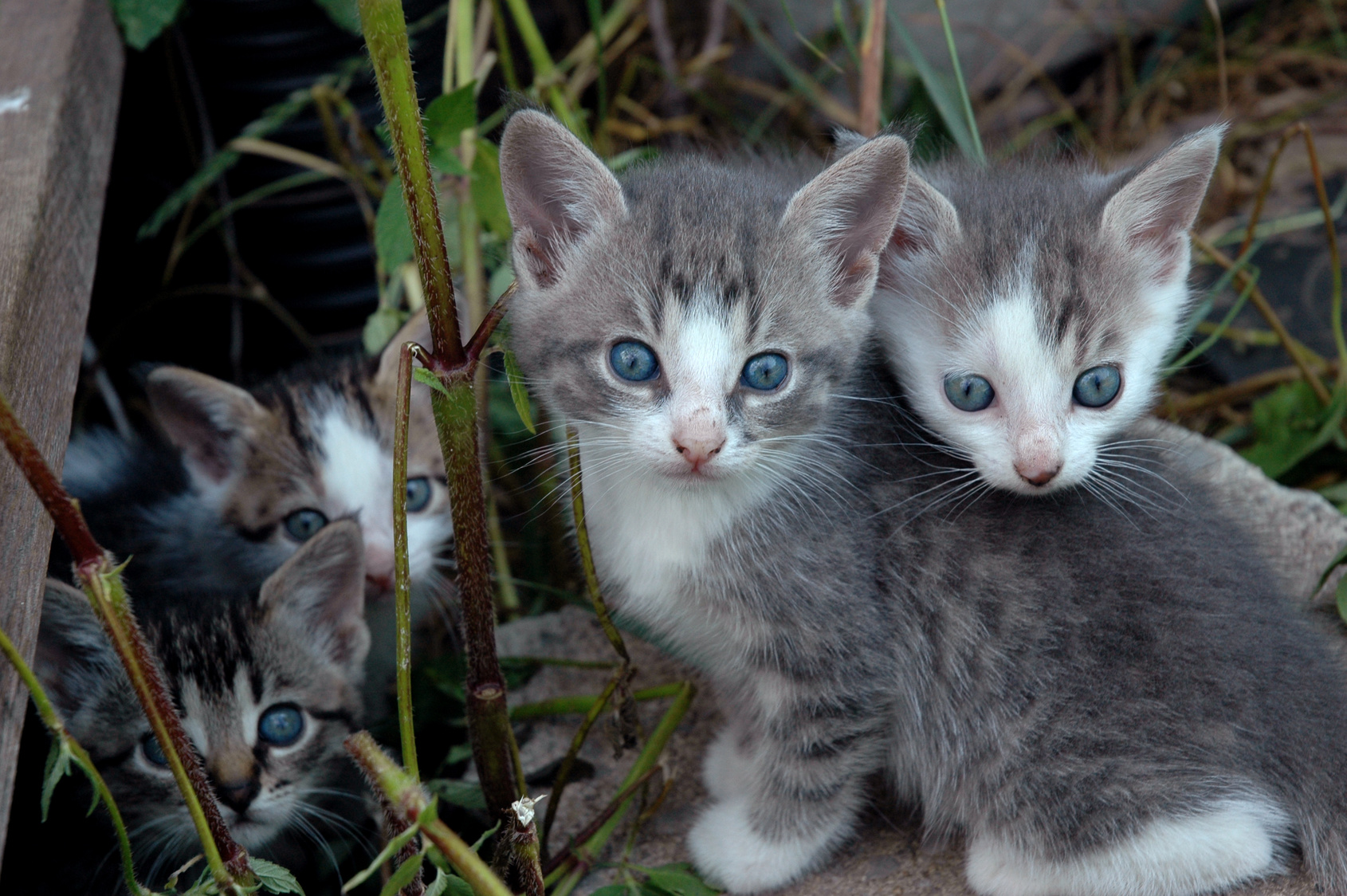Caring for a feral cat colony is a complex journey filled with diverse challenges. Yet, amidst the efforts to provide a better life for these wayward felines, legal implications often slip under the radar.
Surprisingly, both individuals and groups can manipulate the law to contest these noble endeavors.
Existing laws focusing on companion animals often neglect the unique needs of feral cats. Additionally, broader pet laws can affect colony caretakers in ambiguous ways.
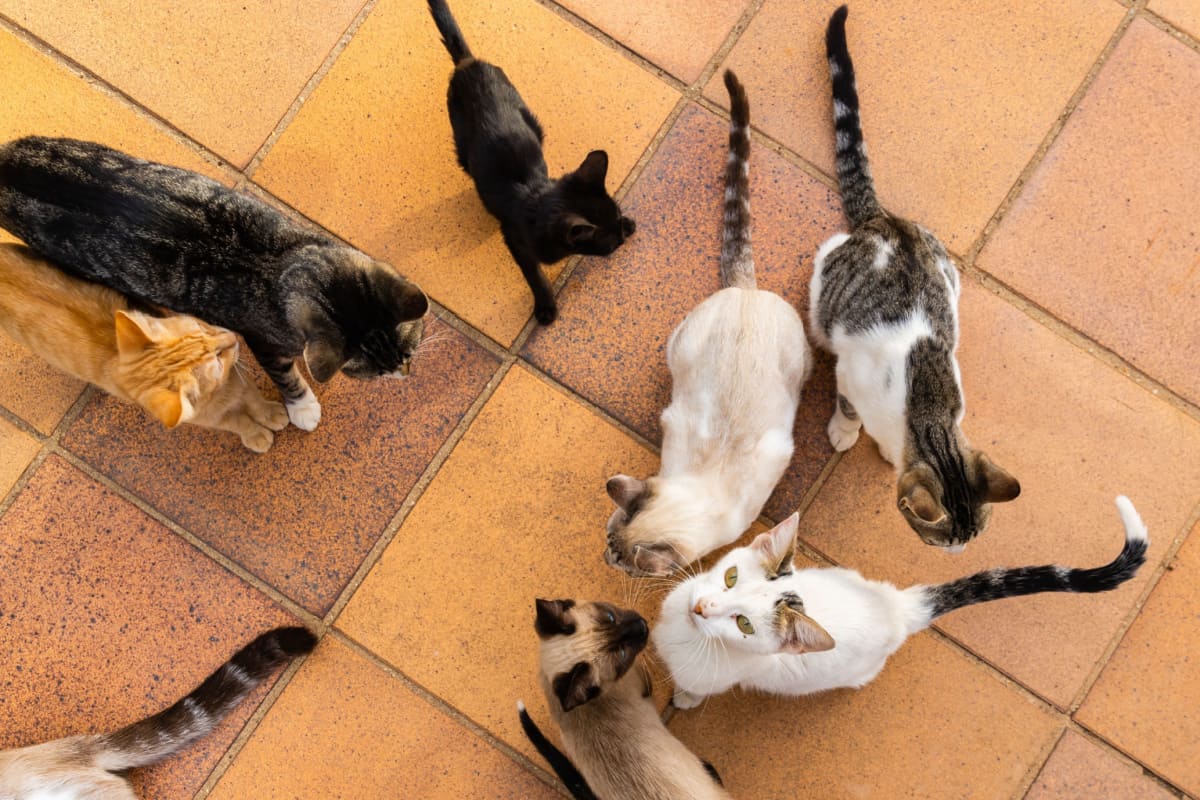
But should these legal uncertainties discourage you from helping a feral cat colony? We fervently say no!
Our goal here is to equip caretakers with the knowledge to navigate potential legal issues. Thus helping their communities and lawmakers understand the situation better.
Ignorance may be bliss, but it won't cut it when it comes to the law.
Legal Perspectives on Cats
Many counties do not include cats specifically in their ordinances.
The role of animal control greatly varies. Some places offer full-service shelters, providing education and sterilization programs, in addition to facilitating adoptions.
However, others do not have any shelter space available at all. In these areas, the duty of animal control is merely to handle complaints and "dispose" of nuisances.
The difference usually lies in the amount of funding animal control has in the budget.
State laws generally cover the official duties and obligations of animal control, and also the cruelty/abandonment/neglect laws.
However, local (county and city/municipality) ordinances may supersede state law if the local laws are more stringent.
Understanding Legal Challenges in Feral Cat Care
Issues that affect feral colony caretakers and rescuers are listed below. They may be found in the state, county, or city/municipal codes if these clauses exist at all:
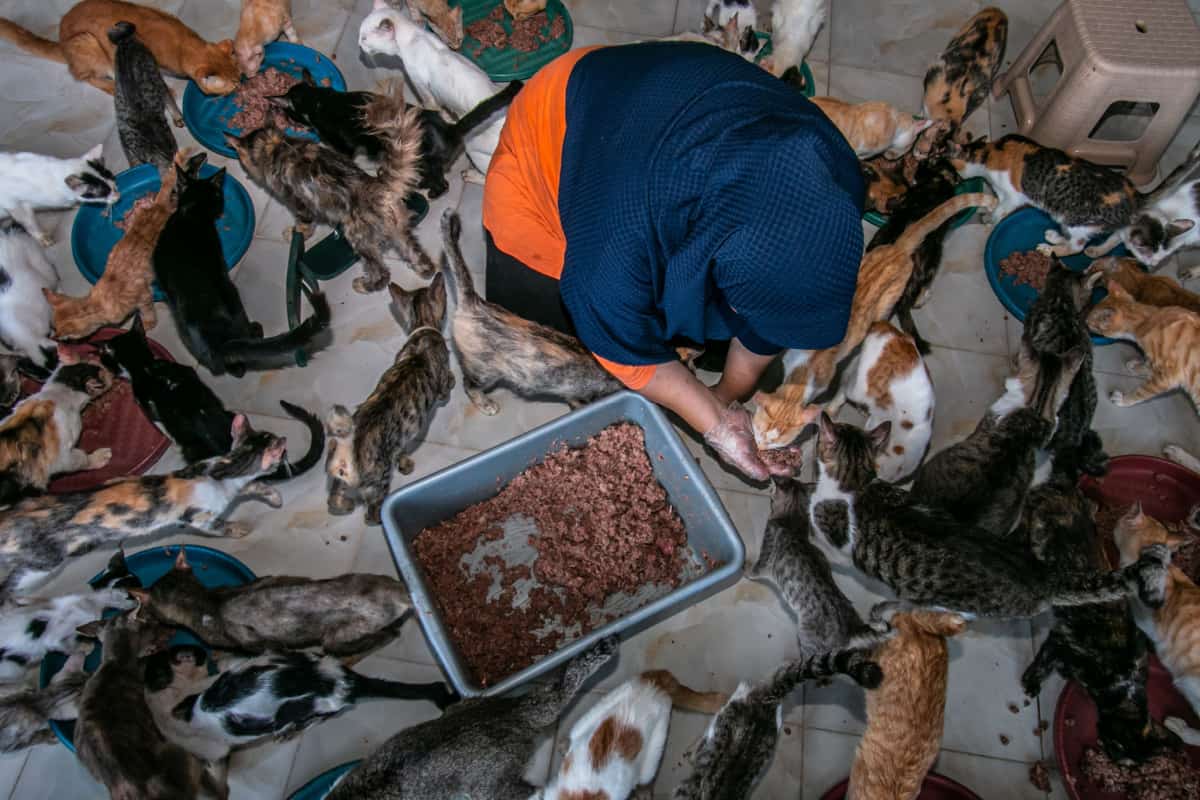
- Definition of ownership
- Mandatory Identification
- Mandatory Rabies Vaccination
- Cat Control (safely confined by house or owner supervision) or Restraint (leash, harness or similar device)
- Feral Cat Caretaker Registration Programs
- Mandatory registration (licensing)
- Cat Limitation (Restriction on number per household)
- Stray Feeding Bans
- Definition of Abandonment and Neglect
- Minimum care requirements
Cat issues in neighborhoods may also be addressed with nuisance or health codes.
Legislation and ordinances are public records. So do your homework in finding the statutes that apply, or contact a local rescue or shelter.
They should be knowledgeable about the laws and calls and emails can be made anonymously.
*Disclaimer: U.S. laws vary widely. This guide outlines general issues for feral cat caretakers. For specifics, research local laws and consult with local animal control and rescue organizations.
The Legal Definition of Cat Ownership
Animal ownership is legally defined in many ways, but a common definition is providing food and medical care.
While this can work in a rescuer's favor by granting "custody" of a neglected animal to the caretaker, this can also be used against colony caretakers.
If the animals cause damage to property, i.e. ruining a prize rose bush by using the garden as a litter box, injuring someone's pet who is allowed to roam, etc., the caretaker could conceivably be held liable.
More pressing are issues of licensing and required vaccinations. The "owner" of the cat can be fined and the cats confiscated by animal control if these are not current.
Navigating Licensing, Vaccinations, Restraint Laws & Pet Limits In Feral Cat Care
At a minimum, most areas require companion animals to be vaccinated for rabies.
While this is generally done at the time of spay/neuter for TNR (Trap, Neuter, Return), yearly boosters are not always possible. This could put the animals and caretakers in violation of the Code.
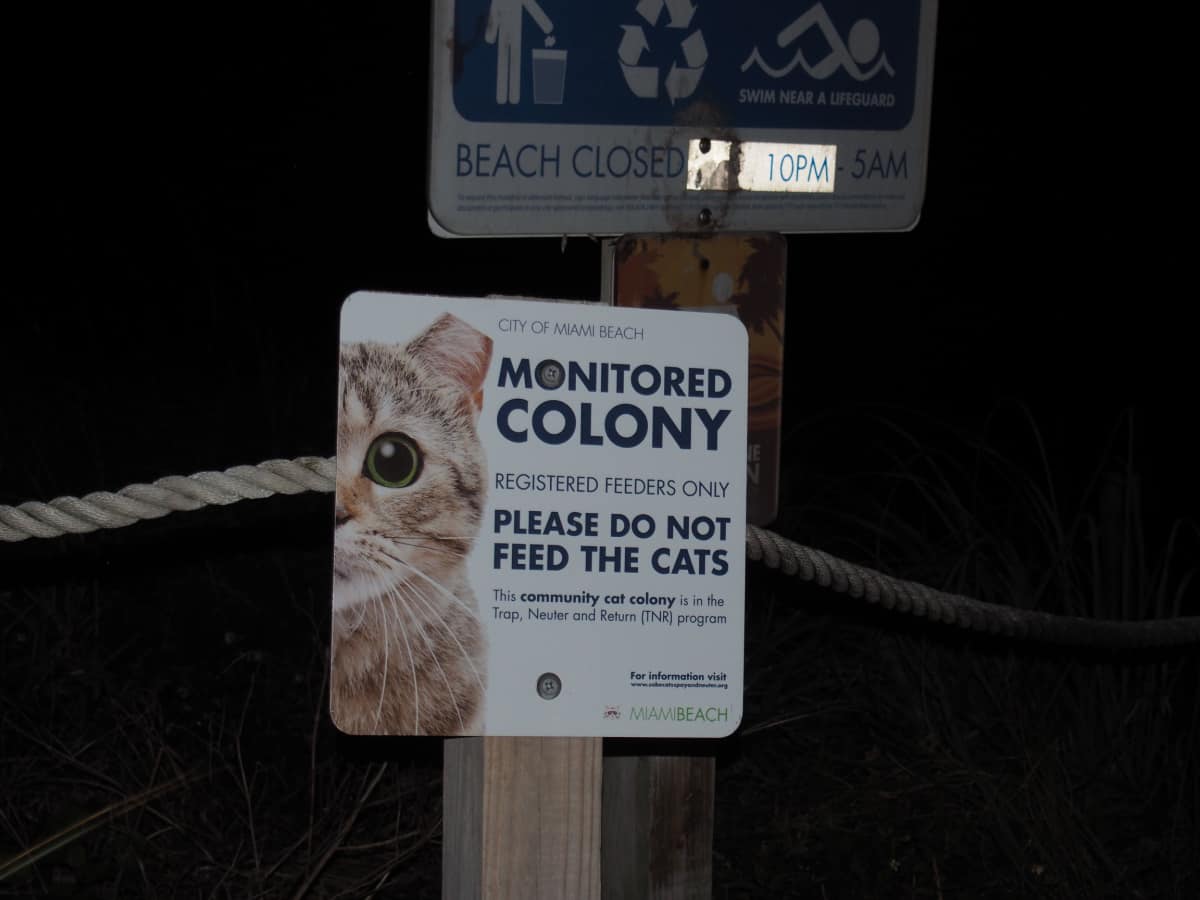
Additionally, some areas require licenses for all "owned" pets, that any owned animals be contained (i.e. in a fenced yard or on a leash), and/or that only a certain number of animals can be legally owned.
Any of these can lead to difficulties for a colony caretaker or rescuer for obvious reasons.
Understanding Abandonment Laws in Feral Cat Care
Every state's animal cruelty statute contains a clause that abandoning an animal is illegal.
While colony caretakers applaud these statutes because if people didn't abandon the cats in the first place, the majority of the feral problem wouldn't exist, it can also come back on them.
The problem is the "R" in TNR.
Caretakers argue that they are not abandoning the cats, they are returning them to the same place where they came from and providing sustenance and support for them after the spay/neuter.
However, as the "owner" of these animals, there are also requirements for what must be provided for the cats as adequate food, water, shelter, and medical care, generally.
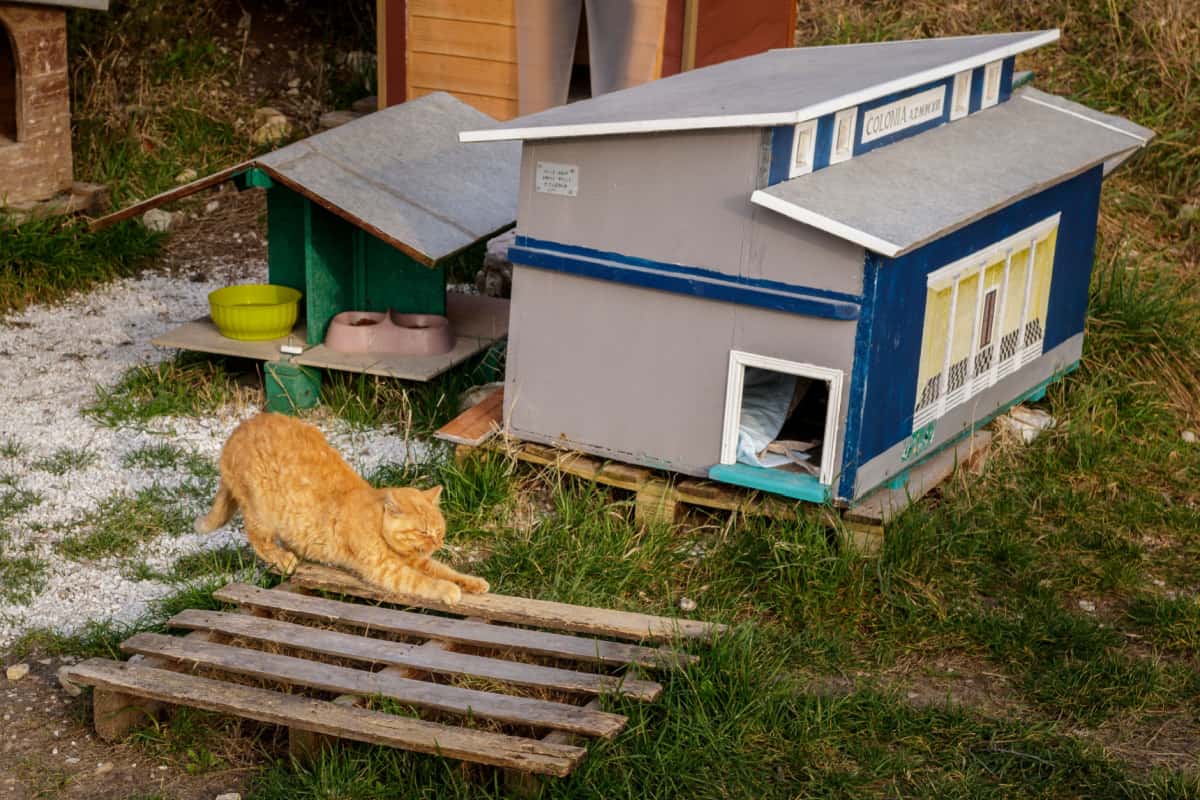
Just providing food is not enough, according to most laws. These are, of course, open to interpretation as to what "adequate" really is. The crux of the abandonment issue is where the TNR occurs.
If you are trapping and returning to your own property, there should be no problem unless there are ordinances forbidding free-roaming animals.
If you trap on private property with the owner's expressed permission (i.e. get it in writing), there also shouldn't be a problem.
The issue comes if there is no expressed permission from the property owner or if the trapping occurs on public land.
Dealing With Complaints And Animal Control In TNR Practices
For the most part, Animal Control doesn't go looking for people who TNR but they do have to respond to complaints.

Complaints may come from neighbors disturbed by cat behaviors, individuals who dislike cats, or wildlife advocates acting on misinformation from conservation groups.
Regardless of who complains, Animal Control has to investigate, and their findings often depend on their own feelings about TNR and feral cats. If they find fault, the charges could entail:
- Abandonment
- Violations of vaccination
- Licensing or pet limit laws
- Failure to provide basic provisions
- Trespassing if TNR was done without permission from the landowner
- A variety of health code issues depend on the health of the colony, the method of feeding (i.e. food becoming rotten and attracting possible rabies-carrying wildlife like skunks and raccoons), etc.
Misdemeanor charges and fines may result from these complaints, potentially leading to cat removal and euthanasia. Attitudes toward animal control officers can influence outcomes.
Laws are often more definitive than caretakers perceive. Avoid a Savior Complex—while caretakers aid, feral cats are natural survivors. Always be polite, courteous, and ready to compromise within the law.
SIGN UP FOR THECATSITE'S EMAIL UPDATES >
Strategies To Prevent Legal Issues In Feral Cat Care
The short answer is to avoid complaints about your colony. In order to do this here are a few steps you can take.
Educating Your Community About Feral Cat Care
Put up flyers about the problem of overpopulation and encourage people to spay and neuter their pets so they aren't contributing to the problem in the area.
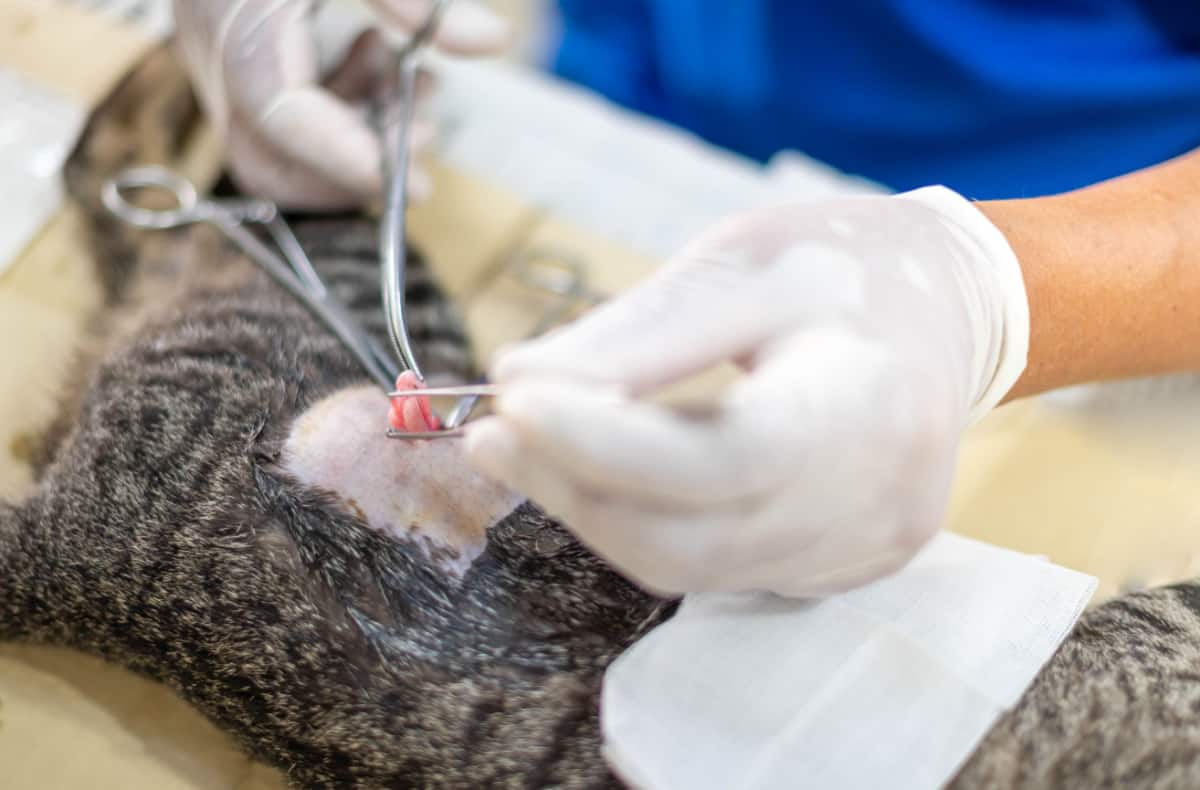
Talk to your immediate neighbors about what you are doing. Educate them on the benefits of TNR: fewer kittens, reduction of the feral population over time, less fighting, etc.
Bring statistics, studies, and the like, and let them see that this isn't just your idea, it is a proven method of controlling the feral population and reducing the risks inherent to overpopulation.
If they know that someone is caring for the cats, they may be less likely to call animal control to "take care of the problem."
Collaborating with a Rescue Organization
While they may not be able to offset the monetary costs, they may be able to defray the civil liabilities of an individual rescuer as well as have greater communication and standing (hopefully) with local animal control.
Of course, the other major benefit is networking with other experienced rescuers, gathering ideas, and supporting each other.
Assessing The Suitability Of A Feral Cat Colony Location
On the edge of or within a wildlife preserve would be one area that is almost guaranteed to have problems and raise complaints.
The complaints may be from entities that you simply cannot win against, namely state and federal wildlife or parks agencies.

If the cats are targets for abuse if there is extreme opposition from neighbors, then moving the colony may be the best option.
Moving a feral colony is never the first choice. In extreme situations, however, it is better than having an animal control trap and euthanizing the cats as the only way to handle the complaints.
Consulting Property Management/Landlord For Apartment/Rental Dwellers
In the case of apartments, the management will be the first place people will call to complain.
Be aware that even a compassionate landlord may not be willing to outrightly grant permission to TNR on their property because of liability and health issues.
Although, they may be willing to have a don't-ask-don't-tell attitude toward you if you present them with the information.
If you decide to go ahead without expressed permission, you need to decide whether or not to let neighbors know what you are doing. This is because complaints to the management will no doubt break any tenuous agreement with the landlords.
As a precautionary note, no matter whose permission you have, it is always good policy to not advertise where and when you will be trapping or feeding.
Whenever trapping, it is a good idea to stay close and keep an eye on the traps. This is not only to minimize the stress on the cats but to give people with bad intentions as little chance as possible to do their deeds.
Unfortunately, there are people who will make opportunities to hurt cats. When it happens to ferals it is extremely difficult to prove and even more difficult to prosecute.
The Value Of Feral Cats And The Importance Of Advocacy
Are feral cats worth the potential problems? Definitely. They are living creatures and while they may not be protected under the law in most areas at this time, they deserve the chance to live a healthy life.
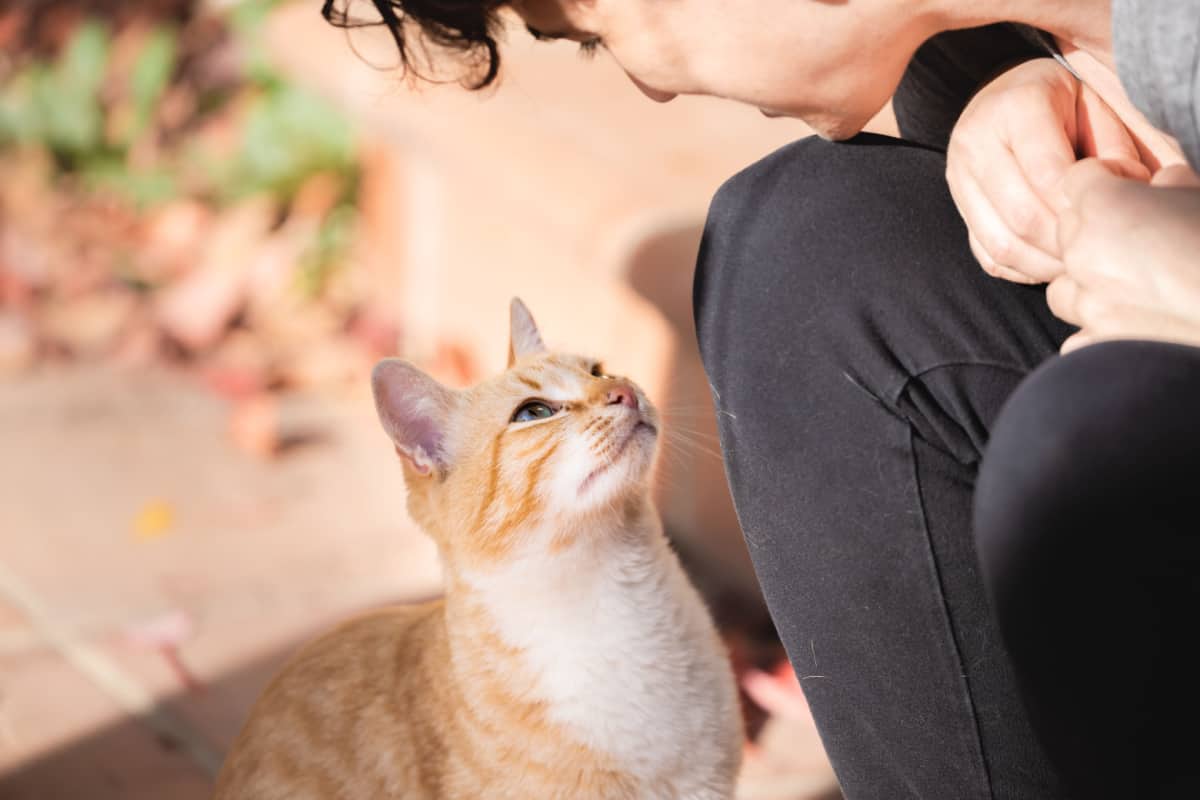
In addition, TNR has been proven to be the only method that can truly control the population of feral cats since they are so adept at breeding.
In the short term, the best way to work with ferals and with the law is for individuals and organizations to work with those who must enforce the law, namely animal control.
There are compromises that can be reached. If prohibitive laws exist or animal control is uncooperative, educating the local community to prevent complaints becomes crucial.
In the long term, this article shows the deficiencies of many codes that simply don't have proper laws on the books to deal with TNR and feral cats. Again, education is the key.
There are groups out there who actively campaign against TNR. Feral advocates need to be just as proactive!
SIGN UP FOR THECATSITE'S EMAIL UPDATES >
Are you on the prowl for more feral feline topics? Claw your way through our articles below for more untamed tales!
From Underground To Forever Homes: Feral Cats Deserve A Chance
A Feral Cat Or A Stray Cat? How To Tell The Difference
Note: We may get commissions for purchases made through links on this page.

